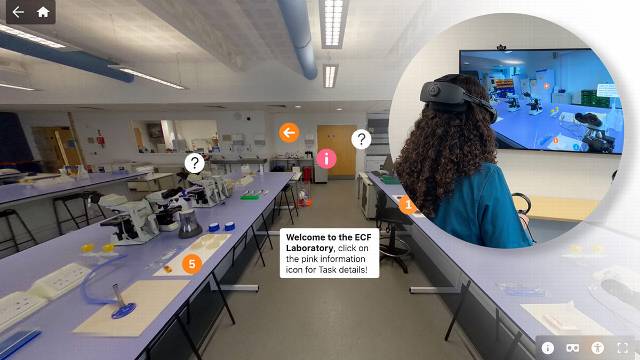
As part of International Women and Girls in Science Day, Nyambura Mwangi, a PhD student researching nematode reducing bio-pesticides in Sugar Beet production discusses her research and shares some advice to anyone thinking about pursuing science.
After finishing secondary school, Nyambura went into world of work, but as she specialised, realised she needed further knowledge.
“I come from Ruiru, a coffee growing region in Kenya and my first exposure to agriculture as a science was at the coffee research Institute which is a forty minutes’ walk from my home.
When I finished my secondary school that was the first place I went to look for a casual job and ended up working with scientists in crop protection and breeding.
I was not school trained to do it but somehow, I learned it through doing and technical training – my interests stem from where I come from and from here decided to choose a course in crop protection as my first degree in Kenyatta University, Kenya and the rest is history.”
“Almost my whole I have life has been concerned with nematodes – it was among the first organisms I was exposed to in my first degree where my bachelor’s degree final year project was on entomopathogenic nematodes which was conducted at the international centre of insects Physiology and ecology (ICIPE), and I took it from there, including a Masters' degree in Nematology from Ghent University.
As those interests grew, she needed to specialise further – leading her first to Belgium, and then to Harper Adams where she truly began to refine her work with her PhD project.
Docking disorder is caused by Free- living nematodes feeding on the roots of sugar beet which cause the roots to branch so when they branch, they cannot take up water and nutrients and in turn decreasing the sugar beet yield.
Nyambura’s project has the potential to have major industry implications, as her findings could replace the pesticides that are now banned due to the environmentally un-friendly chemicals they contained.
Farmers had been using nematicides – but due to environmental concerns most of these chemical pesticides have been banned so as a result we are trying to find out new ways of managing nematodes in sugar beet.
One of the ways that does not use chemicals is using cover crops that have compounds in them which that can kill or reduce nematodes in a similar fashion to the chemical pesticides.
These crops include brassicas like oilseed radish, brown mustard and the alkaloid-containing Opium Poppy. When grown first they release gases or compounds that are detrimental to nematodes and therefore when the sugar beet is planted, the soil is already protected.”
To anyone thinking about studying for a PhD or getting into science Nyambura has this advice:
“A journey always begins with a step, one step then another and then things just start flowing – as much as you aspire to and have big dream to make a statement – believe in yourself.
Believing in yourself is the most important thing in the field of science because there are so many challenges
Sometimes it looks like an uphill task but what matters is taking first step and believing in yourself because anyone can do it.
All you need is to be passionate about your subject and recognise the problem at hand. This motivates you knowing that your solution will positively contribute to the future.

 Blog: Veterinary Medicine students step into immersive 360° laboratory
At Harper & Keele Veterinary School, students are stepping beyond the traditional microbiology bench and into an immersive 360° labo …
Posted
Yesterday
Blog: Veterinary Medicine students step into immersive 360° laboratory
At Harper & Keele Veterinary School, students are stepping beyond the traditional microbiology bench and into an immersive 360° labo …
Posted
Yesterday






